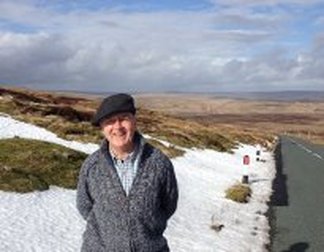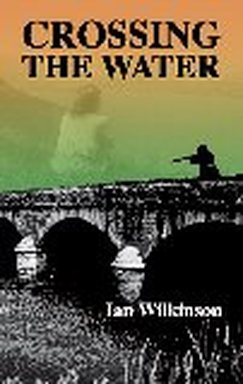
What inspired you to become a writer and a psychologist?
My mother would say I loved stories so much that she taught me to read to find some peace. At family parties, my uncles told stories to the children, so producing my own seemed natural - especially since I can’t sing and I’m tone deaf. Stories and films teach you deep emotional lessons; in ‘The Treasure of the Sierra Madre’, a storm in the final scene blows all the gold dust away into the desert, leaving the two survivors with nothing but their deep friendship for each other. Which is the real treasure? That film gave me a rather wonderful lesson at a very early age.
I was also bullied as a child; the moment I became a psychologist was when I discovered myself retaliating so aggressively that I had become… a bully.
How have you grown as a writer over time?
Writing psychology books and articles gave me the basic skills you need for a long novel; researching the background, organising and editing. It wasn’t all helpful, though; ‘scientific’ writing can be the best sedative on the market! Writing fiction, you have to avoid facts and concentrate on drama, on bringing events and people to life, with the reader as a witness to your story. But experience in psychology also facilitates seeing the world through other peoples’ eyes, understanding odd people, and describing the ups and downs of relationships. As a historical novelist, I want to make the past come alive, sit up, and talk to the reader… and entice them to follow.

As a psychologist I think we all have secrets, and some of us have secret lives. When I met my wife’s father I got him talking about his childhood in Ireland, aided by a good Irish whiskey. I discovered he had not only met Michael Collins as a small boy in his uncle’s pub, but he’d been unwittingly caught in the middle of one of the first cross-fires of the war of Independence. It was a somewhat jaw-dropping moment, which becomes the opening scene of the book. In it, we follow the lives of two boys who grow up during the Irish troubles. They go in opposite directions, but both have to emigrate, and both become fugitives with secret lives. Eventually their lives entangle with a troubled family in the northern dales who provide a female and family drama, counterbalancing the male characters and war action.
All of that generation were modest, often reluctant to tell you what they’d been through in their childhood, through the great depression, and the war. They would tell their story in a matter-of fact way, as if was nothing, and you’d be thinking, my God… so, the story is also an elegy to that lost generation. From an Irish perspective, they won their War of Independence – but half of those children of independence had to face the pain of emigration. From a British and North American perspective, those ' fighting Irish' then became part of a generation whose sacrifice kept us free in World War Two. So I think of it as an Irish ‘Midnight’s children’.
What did you learn during the process?
I learned to use a lot of oral history to give the story authenticity. Learning how the Irish speak English by reading the stories, plays and diaries of Irish writers and playwrights of that era was a particular revelation. The Irish use English as if they were still speaking Gaelic and they use more simile and metaphor, more elaborated imagery and description, to make their use of English lyrical and poetic. They spend words like water, and make beautiful patterns. I hope that some of that has rubbed off into my writing. The feedback has been better than I could have hoped for; it seems to resonate in different ways for different people, judging by the reviews on Amazon. (The book can also be ordered from Waterstones using ISBN 978-0-9928485-0-7).
Ian Wilkinson worked as a clinical psychologist in the NHS, mostly in child mental health teams dealing with unusual and difficult problems. In that career he wrote two books on family assessment and many research articles, for which the BPS awarded him a Fellowship. He is happy to provide copies of his latest book to anyone who would like to review it; contact him via his website http://scribblingian.com/





















 RSS Feed
RSS Feed





















